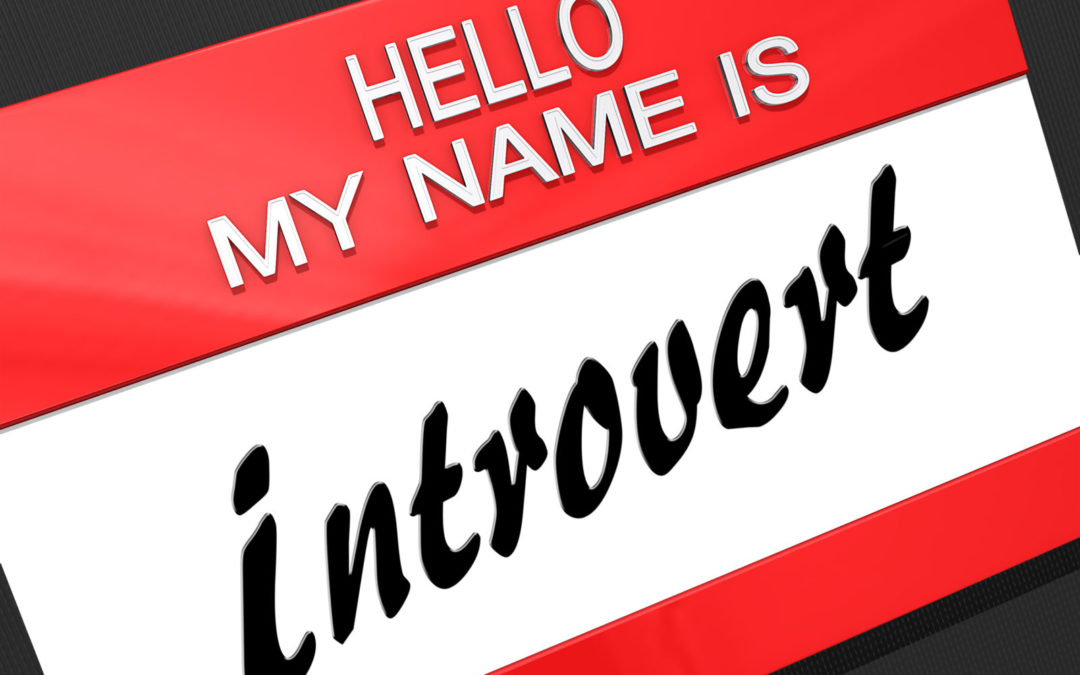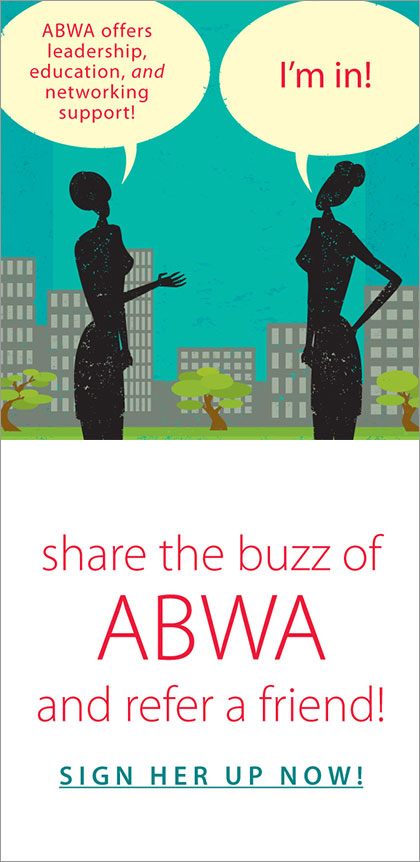
Networking for Introverts
Networking for Introverts – by Ted Janusz
Studies show that up to 93 percent of adults consider themselves shy. And those studies were conducted even before we were encouraged to avoid others by adopting the practice of social distancing and to don the facial attire worn by bank robbers.
Is it any wonder then that when you now go to a social gathering, you may feel uncomfortable? You may look around the room and think (probably in error), “Everybody here knows each other!” or “I knew it was a bad idea to come here!” or “Everybody is looking at me!”
Relax. There is a good chance that most of the room is feeling just as you are. To advance both personally and professionally, we need to engage with people. And sometimes we just need to get comfortable being uncomfortable.
To lessen your anxiety, here are six things you can do:
- Determine in advance your reasons for attending a social event. If necessary, write out the reasons on the back of a business card and sneak a look at the card while you are at the event. You will find that you can do just about anything in life if your why is strong enough. The real secret to successful time management is to constantly ask oneself, “Is this the best use of my time right now?” If so, go to the event and make the best of it. If not, go do something else.
- Plan what you will say when you meet another person at the event. If you can make your opening statement interesting, or better yet humorous, the conversation can get off to a great start. For instance, at a wedding, one guest introduced herself by saying, “Hello! I am a former girlfriend of the groom’s father!”
- Go with a friend. You may know people at the event your friend is unfamiliar with, and vice versa. You can introduce your friend to others and say things about your friend that he may socially be unable to say about himself. And he can do the same for you! Speaker Patricia Fripp says, “It’s like being with your own PR person. We say about each other that which we would not say about ourselves.”
- Look for a person standing alone. “The person, who is speaking to no one, would welcome your conversation,” notes Susan RoAne, “The Mingling Maven,” and best-selling author of How to Work a Room: The Ultimate Guide to Making Lasting Impressions – in Person and Online. “Just because someone is standing alone doesn’t mean he or she is a snob or “unimportant.” People who are alone may be shyer than you.” Perhaps she is hidden under the fake palm tree, clutching a drink in her hands. Chances are, she is repeating those three statements (lies) at the beginning of this article. If you go over and introduce yourself to her, you may have a new best friend for life!
- Pretend you are a talk show host. Treat the person across from you as the most important guest of the evening. What questions (and answers) would your viewers or listeners want to have discussed? As a good host, make the conversation be about the guest, and not about you.
- When the other person begins to talk, listen. I believe that empathetic listening has three parts: 1) listen with your ears (obviously), but also 2) listen with your eyes, and 3) listen with your heart. Instead of planning your response, anxiously waiting for the other person’s lips to stop moving so that you can talk, take the time to be present with the other person.
Listen … Truly Listen
Best-selling author Stephen Covey asked, “Do we listen to understand? No! We listen to reply.” Let me relate the concept of empathetic listening to something I experienced recently. My wife took me into her garden to show off her phlox, mums or rhododendron. I’m not really sure because I am not into gardening. But I am into my relationship with my wife. So rather than thinking at the time about an upcoming presentation I was about to give, I needed to slow down and be in the moment with her.
Always take the time to truly be with the person with whom you are speaking. Do not constantly scan the room for somebody even “more important.”
How to Make Others Love (or Like) You
English journalist Jenni Murray talked about meeting former president Bill Clinton, “He made you feel for those few short moments that you were the only woman in the world and he’d never met anyone as interesting or as lovely as you.” Similarly, Jacqueline Kennedy Onassis seemed to possess the ability to have men all over the world fall in love with her. Asked how she did it, the former First Lady replied, “Two ways. First of all, when a man would finish talking about himself and his work, I would say, ‘Tell me more!’”
(I can only imagine the nervous guy thinking to himself at this point, “Oh, nobody has ever asked me about quim-quat widgets before, but here goes …” We guys and our egos!)
Secondly, as the wife of a wealthy Greek shipping magnate, Jacqueline revealed, “I would hang on their eyes.”
Can you just imagine how powerful that effect must have been? Now, you may not want women or men all over the world to fall in love with you. You may only want to survive your next social gathering. However, you can adapt Mr. Clinton’s or Ms. Onassis’s strategies to help you achieve your goal.
F – O – R – D
If you tend to be an analytical type (and many shy people consider themselves to be), when you meet a new person, imagine the blue oval of the carmaker Ford emblazoned on her forehead. It will give you clues as to what you can talk about with your conversation partner.
The F stands for “Ask her about her family.” (Everybody has a family.)
The O references her occupation. That does not necessarily mean a paying job. My wife was a stay-at-home-mom, one of the most difficult jobs in the world. She was offended when somebody had the attitude, “Oh, you don’t really work!” So, occupation could even refer to a present vocation, for instance, a volunteer for Habitat for Humanity or some other charitable organization.
The R means relaxation. Ask her what she likes to do for fun!
And if you really feel you have hit it off with your new acquaintance, ask her about D, her dreams.
Don’t Try to Impress, Ask Questions Instead
Another successful networking strategy is to ask questions rather than attempting to impress another person by talking about yourself.
I was interviewing for my first job out of graduate school. The firm sent a new hire who was a recent graduate to interview prospective employees from his alma mater. When it was my turn to sit down with him, I asked him about his experiences in graduate school – about the professors, the fraternities and sororities. The interviewer was thoroughly enjoying himself regaling me with interesting stories. When it was finally my turn to launch into my sales pitch, the interviewer interrupted me by saying, “Ted, you are exactly the kind of person we want working at our firm!”
Mary Kay Ash, founder of Mary Kay Cosmetics, said, “Everybody has an invisible sign hanging from their neck saying, ‘Make me feel important.’ Never forget this message when working with [or meeting] people.”
What To Do If You Struggle With Small Talk
I thought when I would attend a social event I would need to develop an elevator pitch or some other pithy story, so that when another person would hear it, they would be forced to take a step back and exclaim, “Wow, Ted! That is so profound! Let me hire you right now!”
It isn’t going to happen. So don’t put that kind of pressure on yourself, either. Simply engage in small talk.
“Small talk,” says author Michael Korda, “should intrigue, delight, amuse, fill up time pleasantly. Given that, anything will do, from dogs to delicatessens. The aim of small talk is to make people feel comfortable – to put them at their ease – not to teach, preach or impress.
It’s a game, like tennis, in which the object is to keep the ball in the air for as long as possible.”
Networking … the Right Way
We have all been to a Chamber of Commerce mixer or some similar networking event, at which one of the attendees does networking the wrong way. His goal is to meet everybody in the room and to get right down to what he wants to accomplish. He’ll run up to you and say, “Hi!” while thrusting his business card into your hand. “I’m John. I fix computers. If you ever need your computer fixed, call me.”
Before you even have a chance to respond, John will rush off to his next … victim.
“I learned that real networking was about finding ways to make other people more successful,’ says Keith Ferazzi, author of Never Eat Alone and Other Secrets to Success, One Relationship at a Time. “It was about working hard to give more than you get. Those who are best at it don’t network – they make friends. The only way to get people to do anything is to recognize their importance and make them feel important.”





